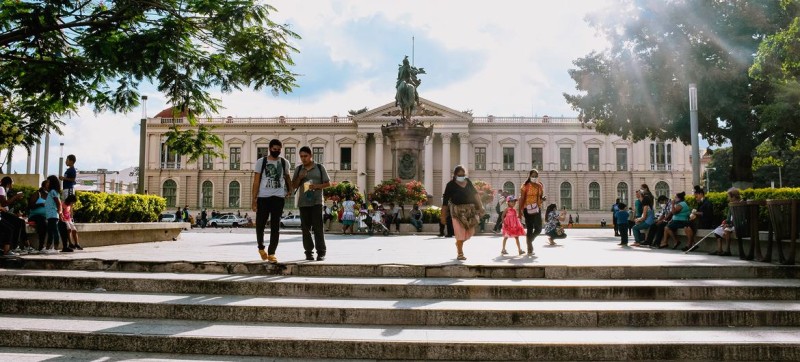Contents
Unsplash/Mauricio Cuéllar Gerardo Barrios Square and National Palace in El Salvador.
the UN Human Rights Council said on Monday.
The state of emergency was first approved in March 2022, and initially for a month, but has been renewed ever since, generating a wave of mass incarceration.
Tweet URL
The experts called for the measure to be lifted immediately and for the Government to review the sweeping new powers introduced to tackle the country’s gang problem.
Trampling on rights
“The state of emergency was declared following a series of gang-related killings. Despite its obligation to protect citizens from such atrocious acts, the Government cannot trample on fair trial rights in the name of public safety,” they said in a statement.
The UN experts urged the authorities to ensure that people are not arrested on mere suspicion of gang membership or association without sufficient legal authorization.
Detainees should also be afforded all fundamental safeguards required under international human rights law and guaranteed due process.
Many arbitrary detentions
They noted that in September 2022, official figures indicated some 58,000 people had been detained. An Executive Decree issued six months later put the number at “more than 67,000”.
Information received indicates that many of these detentions are arbitrary, and some constitute short-term enforced disappearances, according to the experts.
“The prolonged state of emergency, together with legislation allowing for greater surveillance, broader prosecution, and faster determination of guilt and sentencing carries the risk of mass violations of the right to a fair trial,” they added. “Those caught up in the Government’s dragnet in El Salvador must be given their rights.”
They expressed concern about the Government’s reliance on the concept of “permanent flagrant crime” to influence warrantless arrests of people suspected of being gang members.
Mass hearings, ‘faceless judges’
Initial court hearings were reportedly held in groups of up to 500 people. Furthermore, public defenders have been given some three to four minutes to present the cases of 400 to 500 detainees at a time, and mass trials have also been reported.
“Mass hearings and trials – often conducted virtually – undermine the exercise of the right to defence and the presumption of innocence of detainees,” the experts said.
“The excessive use of pre-trial detention, the prohibition of alternative measures, trials in absentia, and the possibility of using practices such as ‘faceless judges’ and reference witnesses all undermine due process guarantees.”
Families also affected
Thousands of families have also been severely affected economically, the experts added, as they have had to incur additional costs to defend their relatives and provide for their wellbeing, health, and safety.
They said the measures threaten to criminalize people who happen to live in the most impoverished areas and who have themselves been targeted by gangs in the past.
The experts warned that the level of disruption and interference in the justice system risks limiting access to justice for all Salvadorans.
“It leads to undue delays in both civil and criminal cases, has a negative impact on guarantees of due process, protection against torture and of the right to life, and may lead to increased overcrowding in places of detention,” they said.
About UN experts
The three experts who issued the statement are Margaret Satterthwaite, Special Rapporteur on the independence of judges and lawyers; Fionnuala Ní Aoláin, Special Rapporteur on the promotion and protection of human rights while countering terrorism, and Morris Tidball-Binz, Special Rapporteur on extrajudicial, summary or arbitrary executions.
They receive their mandates from the UN Human Rights Council, which is based in Geneva.
Special Rapporteurs and other independent experts are not UN staff, and they are not paid for their work.




Comments are closed, but trackbacks and pingbacks are open.